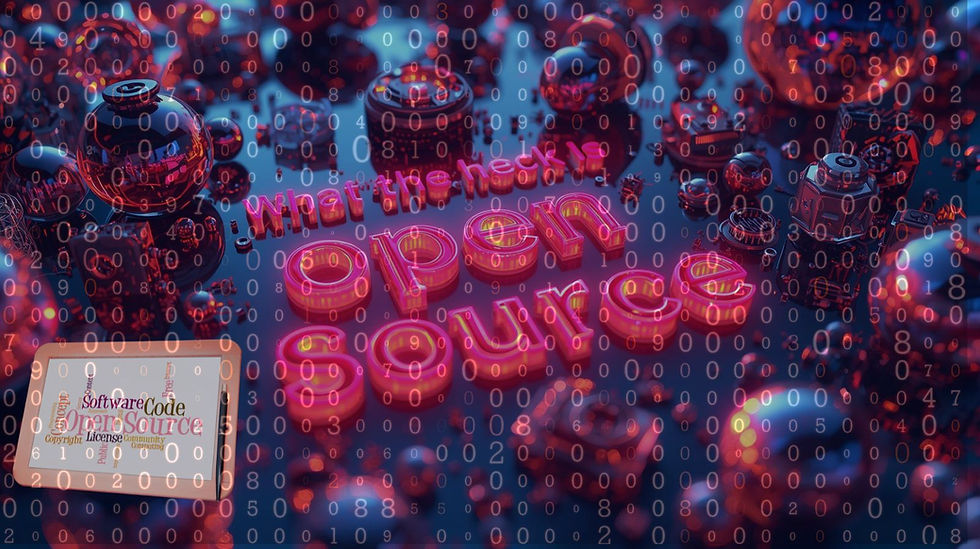What the Heck Is Open Source?
- wrighteck

- Aug 29, 2025
- 2 min read
You’ve probably heard the term “open source” tossed around in the tech world. Maybe someone bragged about using an open-source tool, or you saw it mentioned in an article about Linux or Python.
But what the heck does it actually mean—and why should you care?

Open Source in Plain English
“Open source” just means the code behind a program is free to use, copy, change, and share.
Unlike software made by big companies (like Microsoft Office or Adobe Photoshop), open-source software is built by the community, for the community. Anyone can peek under the hood, suggest improvements, or build new versions.
Popular Open-Source Tools You Already Know
Linux: The operating system behind most servers (and even Android phones).
Python & JavaScript Libraries: The building blocks of today’s apps and websites.
WordPress: Powers over 40% of the internet’s websites.
GIMP: A free alternative to Photoshop.
Chances are, you already use open-source software without realizing it.
Why Open Source Matters
It’s Free (or Almost Free): Great for small businesses, students, and hobbyists.
Faster Innovation: Thousands of people around the world improve it constantly.
Transparency & Security: Anyone can inspect the code, which makes it harder to hide shady stuff.
Community Power: Open source is more than software—it’s collaboration.
How You Can Get Involved
Use It – Try free tools like LibreOffice, Audacity, or Blender.
Learn from It – Browse open-source projects on GitHub to see how real apps are built.
Contribute – You don’t need to be an expert. Start by fixing typos, writing documentation, or reporting bugs.
The Bottom Line
Open source isn’t just about free software—it’s about freedom, community, and creativity. Whether you’re a coder, designer, or just curious, there’s an open-source project waiting for your input.
It’s the tech world’s way of saying: “Come join us—everyone’s welcome.”
💬 Have you ever used open-source tools before (like WordPress, Linux, or Python)? Drop a comment with your favorite open-source software—I’d love to see what you’re using!
Comments